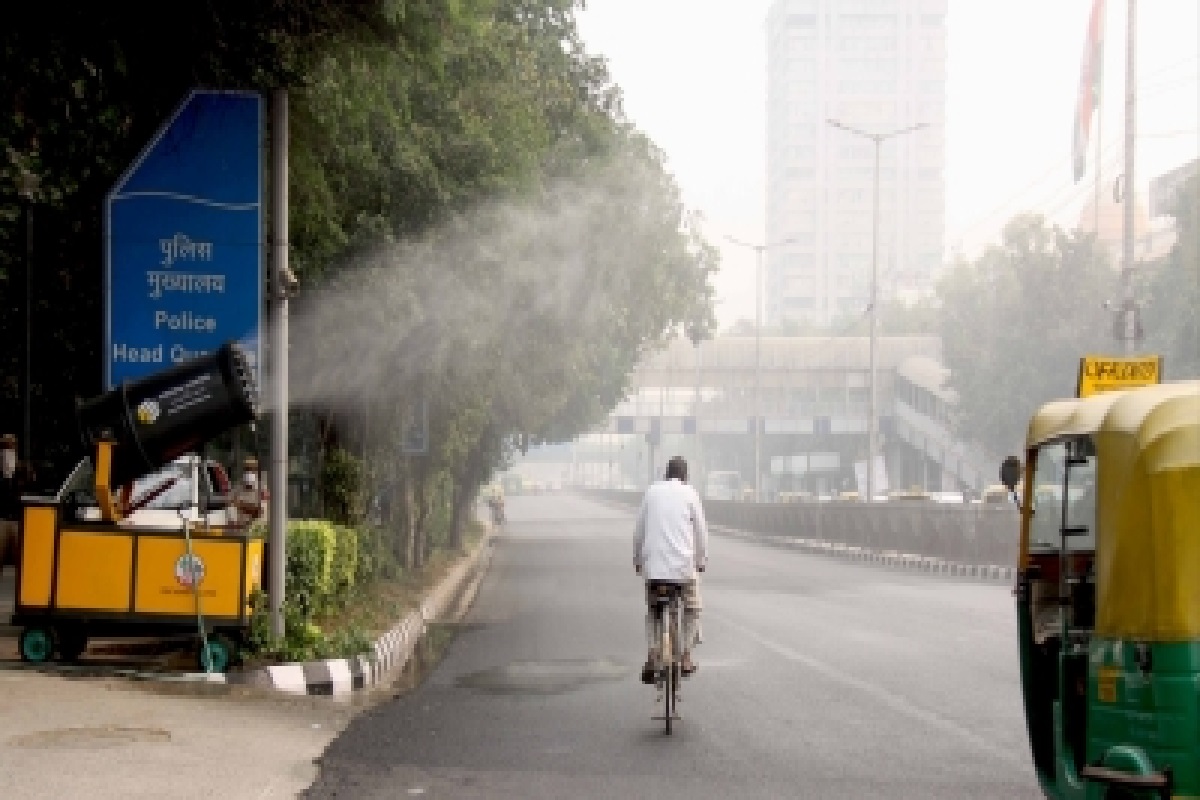Air quality in the national capital continues to remain in the ‘very poor’ category Monday morning with Air Quality Index recorded 347 which comes in the category of ‘very poor’ and ‘hazardous’. The AQI deteriorated further from Sunday morning after having touching 350 mark.
An AQI between zero and 50 is considered “good”; 51 and 100 “satisfactory”; 101 and 200 “moderate”; 201 and 300 “poor”; 301 and 400 “very poor”; and 401 and 500 “severe”.According to the System of Air Quality and Weather Forecasting And Research (SAFAR), the AQI in the overall Delhi region was in the ‘very poor’ category at 350. In the Delhi University area and Pusa the AQI remained in the ‘very poor’ category at 372 and 343 respectively. In the Lodhi Road area, the AQI was in the ‘very poor’ category at 326. Further, near IIT Delhi, the AQI was in the ‘very poor’ category at 303. At Mathura Road, the AQI was in the ‘very poor’ category at 364. Around Delhi airport, the AQI remained in the ‘very poor’ category at 349.
Earlier on Saturday evening, several parts of the national capital fell into the ‘severe’ category of AQI.
The AQI in the Anand Vihar area on Saturday evening was recorded at 457 which falls under the ‘severe’ category. Air quality in the adjoining Noida was also in the ‘severe’ category.
The air quality in the national capital is also affected because of stubble burning in surrounding Punjab, Uttar Pradesh, Haryana and Rajasthan in the winter.
Meanwhile, the Commission for Air Quality Management in NCR and adjoining areas has intensified its efforts to ensure enforcement and compliance with its directions in view of deteriorating air quality in Delhi.
The Commission has issued closure directions to 45 coal-based industrial units in Rajasthan. Further, 32 coal-based units (9 in Haryana and 23 in UP) have been closed down permanently. 48 units (8 in Haryana and 40 in UP) have temporarily suspended their operations till these units are converted to approved fuels.
The Graded Response Action Plan (GRAP) sub-committee decided to implement Stage III of GRAP in the entire NCR in a move to prevent further deterioration of air quality.
“Under this, all construction work will be banned except for special projects like Central Vista and other projects of national need,” read the official press release from Commission for Air Quality Management in NCR and Adjoining Areas.
While comprehensively reviewing the overall air quality parameters during the meeting, the Commission noted that due to unfavourable meteorological conditions with slower wind speed and sudden spike in farm fire incidents, it is considered necessary to implement Stage III of GRAP with immediate effect in the entire NCR.
Advertisement
